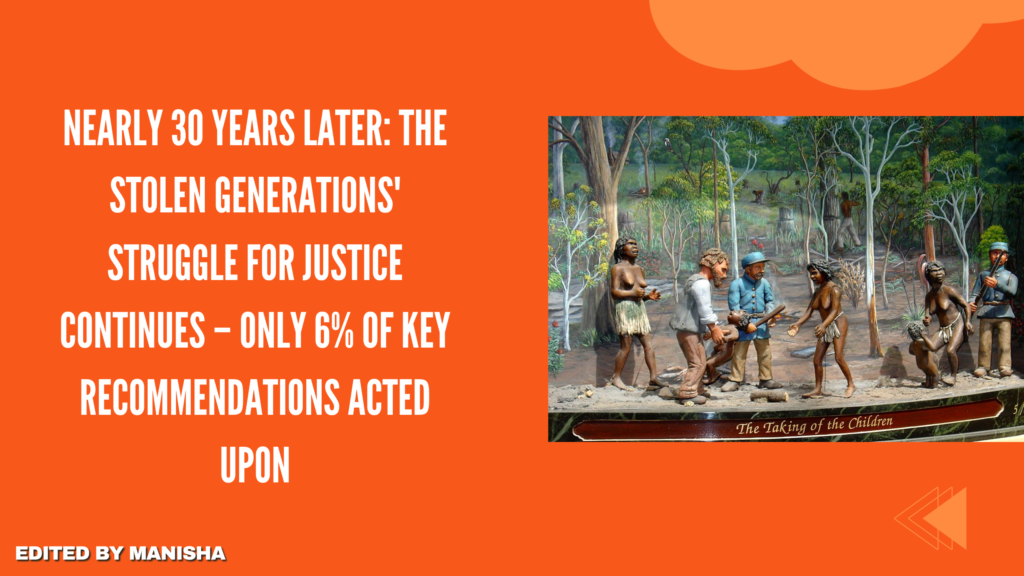
When the Bringing Them Home report into the Stolen Generations was presented in Parliament on Sorry Day, May 26, 1997, many survivors and their descendants experienced a sense of optimism. Their voices and stories, long silenced, were finally being heard after a national inquiry into the forced removal of Aboriginal and Torres Strait Islander children from their families. The report made several key recommendations, including a national apology, reparations, and improvements to services aimed at supporting the Stolen Generations, their families, and communities.
However, a recent report by the Healing Foundation, titled Are you waiting for us to die? The unfinished business of Bringing Them Home, highlights that very few of the original recommendations have been fully implemented. “Nearly 30 years after its release, survivors are dying at an alarming rate,” stated Healing Foundation chair and Kungarakan man Steve Larkin. “Many are without the support they need to age with dignity.”
In 2021, Professor Larkin wrote the foreword to the Make Healing Happen report, which also reviewed government responses to the Bringing Them Home findings. “Since then, we’ve witnessed many survivors pass away, with little change to the aged care, health, and other services essential for their well-being,” he wrote in the report. “The Bringing Them Home report presented a compelling argument for a systematic response centered on reparations and healing. Yet, year after year, on National Sorry Day and other key occasions, Stolen Generations survivors have continued to share their stories, urging action that remains largely unaddressed.”
The forced removal of Indigenous children from their families, which took place from the mid-1800s until the 1970s, is considered by many to be an act of genocide under the United Nations’ definition. These children became known as the Stolen Generations. Until the Bringing Them Home report, there had been widespread denial of this painful history.
The Healing Foundation’s chief executive, Shannan Dodson, the daughter of Professor Mick Dodson, who co-led the national inquiry, said that as the number of survivors dwindles each year, urgent action is needed from all levels of government, along with churches, police, and other institutions to support the Stolen Generations. “We have already lost too many survivors, even in the past few weeks,” Dodson said. “Immediate action is needed to provide equitable redress, ensure access to family records, support Stolen Generations organizations, and provide culturally safe, trauma-informed aged care and health services.”
Professor Larkin emphasized that the report offers practical policy solutions for the complex challenges faced by survivors. “Stolen Generations survivors have unique and complex aging needs due to their forced removal, often experiencing worse outcomes compared to other older Indigenous people,” he said. “They represent the gap within the gap. Unfortunately, many are not accessing necessary services due to fear of re-traumatization.”
The Healing Foundation’s new report presents 19 recommendations as part of a National Healing Package for Stolen Generations survivors, covering areas such as reparations, rehabilitation, research, records, family tracing and reunions, acknowledgments and apologies, education, training, and monitoring. The report reveals that only 5 out of 83 recommendations from the original Bringing Them Home report (6%) have been fully implemented.
Catherine Liddle, CEO of SNAICC – National Voice for our Children, emphasized the failure of successive governments to act on the recommendations. “This report reinforces what we’ve been saying all along – that these recommendations are rarely put into practice,” she said. “We must commit to the findings, we know what needs to be done, and we know how to keep children safe.”